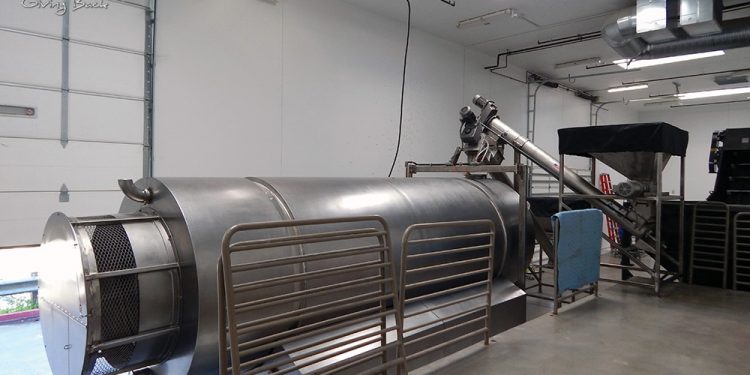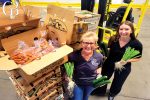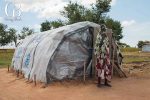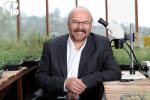San Diego Food Bank’s Composting & Recycling Center Turning Food Waste Into Nutrient-Rich Compost

Last year, the Food Bank received more than 32 million pounds of food through food donations and food purchases on the wholesale food market. Nearly 98% of the food received by the food bank is provided to those in need, but some donations come in damaged or expired and cannot be distributed. This inedible food and its packaging used to end up in the garbage, costing the Food Bank more than $25,000 in annual landfill fees.
Since the Food Bank implemented a zero landfill food waste goal, the food waste is now being transformed into nutrient-rich compost thanks to its Recycling & Composting Center which was opened at a ribbon cutting ceremony with actor and environmentalist, Ed Begley Jr.
Based in its 90,000-square-foot warehouse in Miramar, the food bank’s 3,600-square-foot Recycling & Composting Center features two larger-than-life recycling and composting machines that have a combined weight of 15 tons and a height of more than 18 feet.
The first machine, a so-called “turbo separator,” can accept unopened, but damaged and inedible cans, boxes and jars of food which, using revolutionary new technology, separates the food from its packaging while inside the machine – sending the food waste to one container, while discharging the paper, plastic and aluminum into another. The food waste is then sent to a 10-ton composting machine, called a “digester,” that mixes the food waste with wood shavings, eventually turning it into high-quality, nutrient dense compost. The Food Bank gives this compost to area nonprofits operating community gardens that grow produce for low-income families.
“Thanks to this amazing new technology, we are diverting about 600,000 pounds of food and its packaging from the local landfill to community gardens as compost. So nothing is wasted. The food waste feeds community gardens, and the packaging gets recycled. Food banks from across the country are contacting us about replicating our Recycling & Composting Center at their facilities,” San Diego Food Bank President & CEO, James Floros shared with GB Magazine. “The Recycling & Composting Center is helping to make the Food Bank a zero waste facility, and the money saved in land disposal fees is providing an additional 125,000 meals to San Diegans in need every year,” said Floros.
In 2017, the Food Bank was the first food warehouse in the world to be awarded the LEED Gold Version 4 certification. This recognized the Food Bank’s water and energy efficiency measures, the installation of 1,400 solar panels on its roof making it energy independent, and the work of its Composting & Recycling Center. In total, the Food Bank’s sustainability program is resulting in more than 850,000 more meals for people in need in San Diego County every year.
For more information about the Food Bank’s environmental sustainability program visit:
www.SanDiegoFoodBank.org/GreenInitiatives.





